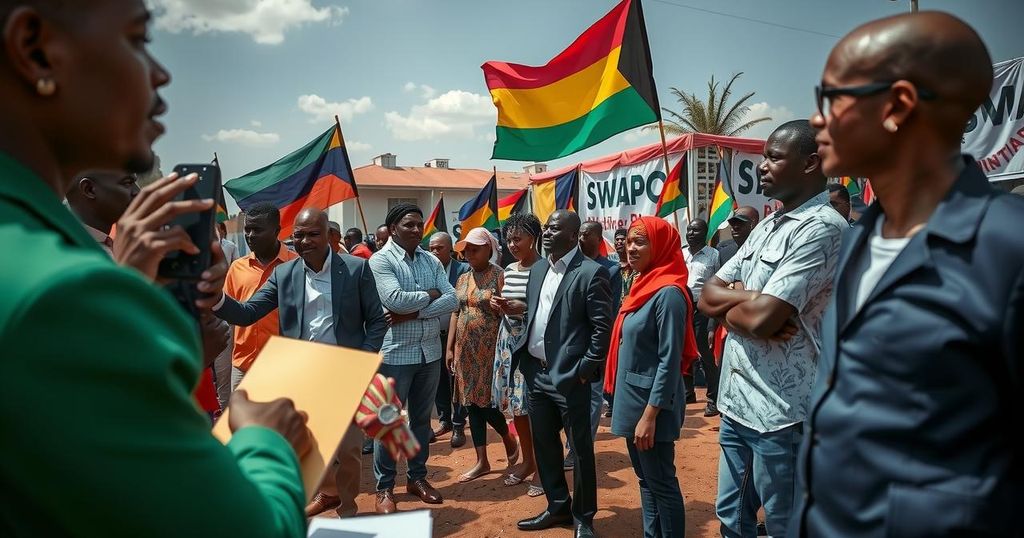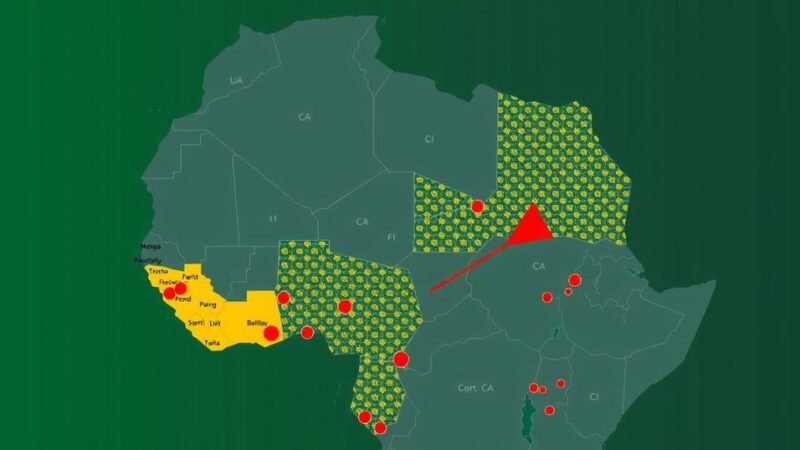The 2024 Namibian elections pose significant challenges for the ruling SWAPO party, which is experiencing declining public support and facing a fragmented opposition. SWAPO lost its two-thirds majority in 2019 and fared poorly in local elections, while new parties like the IPC and AR are gaining traction. Netumbo Nandi-Ndaitwah aims to become the first female president amid these changing dynamics, promising substantial growth and socio-political advancements.
In the context of the recent Namibian elections, the South West Africa People’s Organisation (SWAPO) encounters significant challenges, marking a notable shift in the political landscape since its post-independence dominance began in 1990. SWAPO faces increased pressure from a fragmented opposition amid a declining public support that has already seen them cede their two-thirds majority in 2019 while also faltering in local elections. In parliamentary competitions, the presence of 21 political parties, including rising opposition movements such as the Independent Patriots for Change (IPC) and Affirmative Repositioning (AR), suggests a changing tide that could impact SWAPO’s stable hold on power.
Amidst these political machinations, Netumbo Nandi-Ndaitwah, the current vice president, seeks to become Namibia’s first female president. Having pledged ambitious economic plans and highlighted socio-political issues that resonate with voters, Nandi-Ndaitwah is aiming to unite the party under her leadership. However, her candidacy may also be overshadowed by internal conflicts within the opposition and the potential backlash against IPC leader Panduleni Itula, who faces criticism regarding the implications of his personal life.
The elections, which are further complicated by Namibia’s proportional representation electoral system, foster a multiplicity of political movements but simultaneously dilute the effectiveness of the opposition against the entrenched SWAPO. Political analysts have expressed that while SWAPO’s traditional voter base persists, the party’s trajectory is increasingly susceptible to shifts reflecting broader regional political discontent. Moreover, with an electoral trend suggesting the IPC could emerge as the primary opposition party, the outcome will certainly be pivotal in defining Namibia’s political future.
The political landscape in Namibia has shifted considerably since gaining independence in 1990, with SWAPO previously enjoying near-absolute control over governance. However, recent elections have exposed vulnerabilities within the party, reflecting trends seen across southern Africa where long-ruling parties are experiencing declining support. Political analysts attribute this to the fragmentation within opposition parties, compounded by a diverse array of competing interests. The emergence of parties like the IPC signals a potential reconfiguration of Namibia’s political dynamics, challenging SWAPO’s historical dominance and offering a different political narrative across the nation.
In summary, the 2024 Namibian elections represent a critical juncture for SWAPO, as it confronts unprecedented challenges from a fragmented opposition and shifting voter sentiments. The candidacy of Nandi-Ndaitwah highlights an effort to revitalize the party’s image while addressing pressing socioeconomic issues. Nonetheless, the competition from entities like the IPC and AR indicates that Namibia’s political future may shift dramatically, redefining the landscape of authority and governance in the country for years to come.
Original Source: www.dw.com






